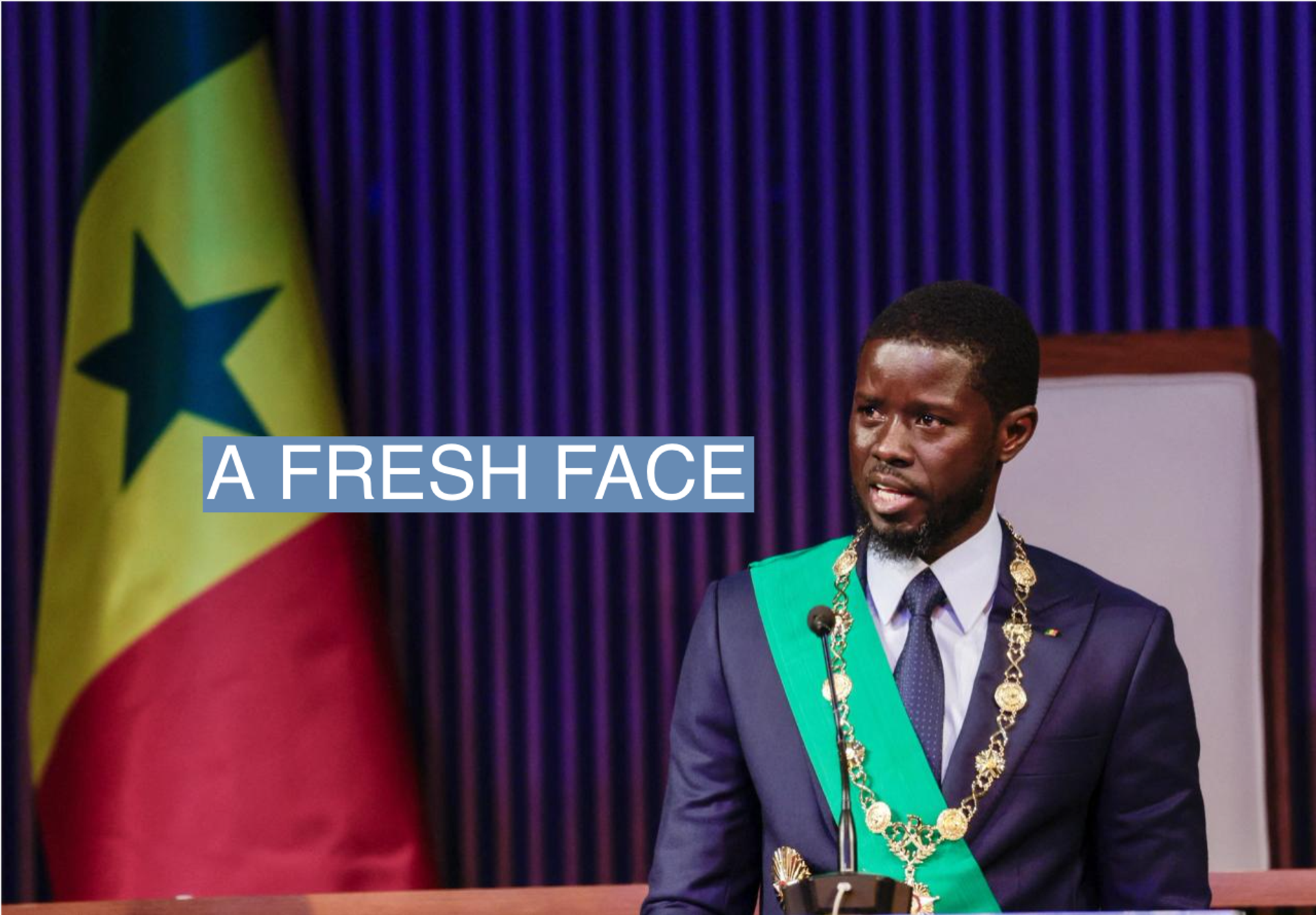The News
Bassirou Diomaye Faye, a former tax official held in prison on government charges a little over two weeks ago, has been sworn in as Senegal’s fifth and youngest ever president.
Faye said his priorities for Senegal were to stir systemic change and fight corruption, while preserving sovereignty and national stability.
The election’s outcome showed “a desire for change,” Faye said at the inauguration. He won 54% of the vote in the first round, according to the official result. His campaign had promised reforms to the euro-pegged CFA currency system that ties Senegal and 13 other African countries to France.
“Senegal will be a country of hope, at peace, with an independent justice system and a stronger democracy,” said Faye.
Know More
The inauguration was attended by more than a dozen regional leaders, including Ghana’s president Nana Akufo Addo, and Nigeria’s Bola Tinubu, chair of the West African ECOWAS bloc that has struggled with coups especially in French-speaking countries.
Mamady Doumbouya, Guinea’s military head of state since an October 2021 coup, was loudly cheered by the audience after Faye introduced him, as were the heads of the transitional governments in Mali and Burkina Faso.
Step Back
At 44, Faye is Africa’s youngest elected leader. He presents a youthful face to democracy and the presidency in Senegal where the median age is 19. Both his main rival in last month’s elections, and immediate past president Macky Sall were 62 years old, and have long been part of the Senegalese political establishment. The presidency is Faye’s first role in public office.
After his civil service career as a tax inspector, he joined the PASTEF political party, formed in 2014 by firebrand Ousmane Sonko whose popularity was crucial for victory (Sonko attended the inauguration, contrasting Faye’s suit in black traditional Senegalese kaftan and hat).
An outsider largely unknown outside his party a year ago, Faye’s rise to the top in Senegal caps a whirlwind eight-week period that put one of Africa’s most stable democracies through a stress test. Sall initially put off the elections scheduled for Feb. 25 for ten months, but pressure from residents and opposition parties — and crucial rulings by Senegal’s highest court – led to the March 25 elections that Faye won.
As president, Faye now bears the burden of solving challenges that sowed popular dissatisfaction with Sall, particularly unemployment which is at 19.5%.
